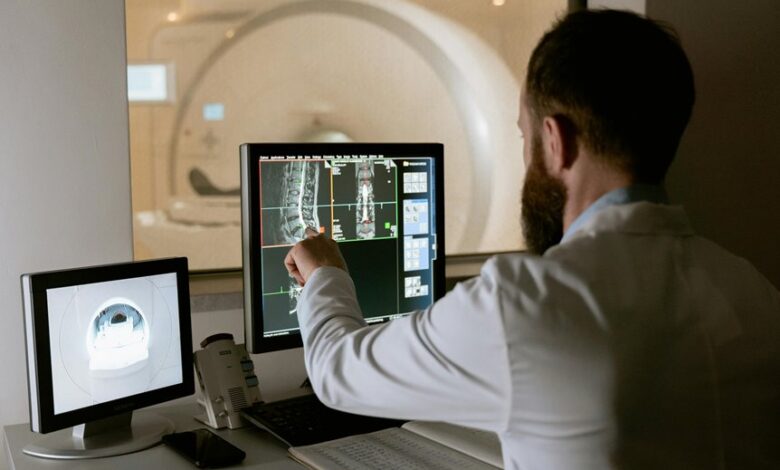Innocent Test

The Innocent Test serves as a critical framework for assessing ethical implications in decision-making. By examining motives and challenging assumptions, it promotes a structured approach to moral clarity. Its relevance spans numerous fields, raising questions about integrity and accountability. However, its application is not without controversy. What challenges does it face in real-world scenarios, and how can its principles be effectively integrated into daily practices?
Understanding the Innocent Test
The Innocent Test serves as a pivotal framework in evaluating the ethical implications of actions and decisions within various contexts.
It challenges innocent assumptions that often underlie ethical dilemmas, prompting an examination of motives and consequences.
The Importance of Ethical Decision-Making
Ethical decision-making is grounded in well-defined ethical frameworks that guide individuals and organizations in evaluating their choices.
The consequences of poor ethical choices can be significant, leading to reputational damage, legal repercussions, and diminished trust among stakeholders.
Understanding these frameworks and their implications is essential for fostering responsible and accountable behavior.
Defining Ethical Frameworks
While various scenarios may challenge decision-makers, the establishment of a robust ethical framework is crucial for guiding actions and judgments.
Ethical principles serve as foundational guidelines that aid in navigating moral dilemmas, ensuring decisions are made with integrity.
Consequences of Poor Choices
A firm ethical framework provides guidance, yet the consequences of poor decision-making can have far-reaching effects, often extending beyond the immediate context.
Instances of poor judgment may lead to significant long-term effects, including reputational damage, loss of trust, and diminished opportunities.
Ethical decision-making is essential for fostering a culture of accountability and ensuring that choices align with values that promote freedom and integrity.
How the Innocent Test Works
The Innocent Test operates through a systematic evaluation of actions and intentions, aiming to discern the moral implications of a given scenario.
It challenges innocent assumptions while striving for test accuracy by considering:
- The context of decisions
- The impact on affected individuals
- The underlying motivations
- The potential for redemption
This framework seeks to foster understanding and promote ethical decision-making in complex situations.
Applications in Various Fields
The Innocent Test has significant applications across multiple domains, including legal, educational, and psychological fields.
In legal contexts, it serves as a tool for assessing culpability, while in education, it informs assessment strategies to gauge student understanding.
Additionally, its role in psychological evaluation highlights its versatility in measuring cognitive and behavioral responses.
Legal Implications and Uses
While the legal implications of the Innocent Test vary across jurisdictions, its applications span multiple fields, including criminal justice, employment law, and child custody disputes.
Key legal considerations include:
- Potential for wrongful accusations
- Ethical dilemmas in testing procedures
- Impact on individual rights
- The balance between societal safety and personal freedom
These factors shape the ongoing discourse surrounding its utility and consequences.
Educational Assessment Strategies
Numerous educational assessment strategies are employed across various fields to evaluate knowledge, skills, and competencies effectively.
Formative assessments, which provide ongoing feedback, play a crucial role in fostering learning and adaptation. In contrast, performance evaluations offer a comprehensive overview of an individual’s capabilities in specific tasks.
Together, these strategies ensure a balanced approach to education, enhancing both individual and organizational growth.
Psychological Evaluation Methods
Psychological evaluation methods serve as critical tools across various fields, enabling professionals to assess mental health, cognitive abilities, and behavioral patterns.
These methods must account for cognitive biases and ensure test reliability to provide accurate insights.
- Enhancing therapeutic interventions
- Informing educational strategies
- Supporting workplace dynamics
- Guiding legal decisions
Benefits of Implementing the Innocent Test
Implementing the Innocent Test offers several significant advantages that can enhance decision-making processes across various fields.
It promotes social responsibility by encouraging individuals and organizations to consider ethical implications in their actions.
Furthermore, the test fosters moral clarity, enabling stakeholders to navigate complex dilemmas with greater confidence.
Ultimately, these benefits contribute to a more principled and conscientious approach to decision-making in society.
Challenges and Criticisms of the Innocent Test
Although the Innocent Test is lauded for its ethical framework, it faces significant challenges and criticisms that merit examination.
Key concerns include:
- Ethical dilemmas in application
- Moral ambiguity in outcomes
- Potential for misuse by authority
- Lack of universal applicability
These issues highlight the complexity surrounding the Innocent Test, raising questions about its effectiveness and reliability in promoting true ethical freedom.
Conclusion
In conclusion, the Innocent Test stands as a beacon of ethical clarity in a world often clouded by ambiguity. By systematically assessing intentions and consequences, it equips individuals and organizations to navigate moral complexities with integrity. Its diverse applications underscore its profound relevance across various fields, while its benefits promote a culture of accountability. However, like all frameworks, it faces challenges and criticisms, yet its potential to revolutionize ethical decision-making is nothing short of monumental.




